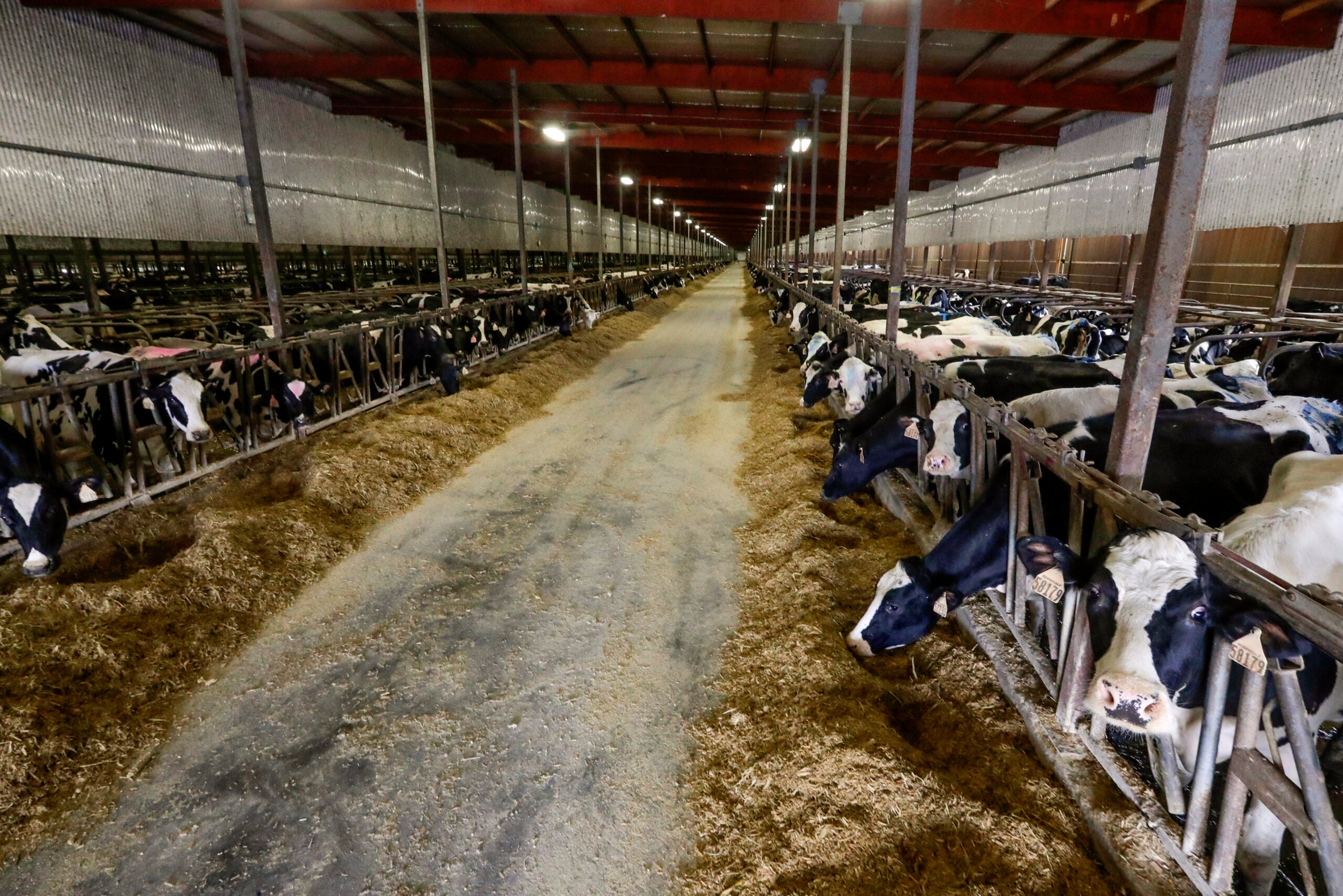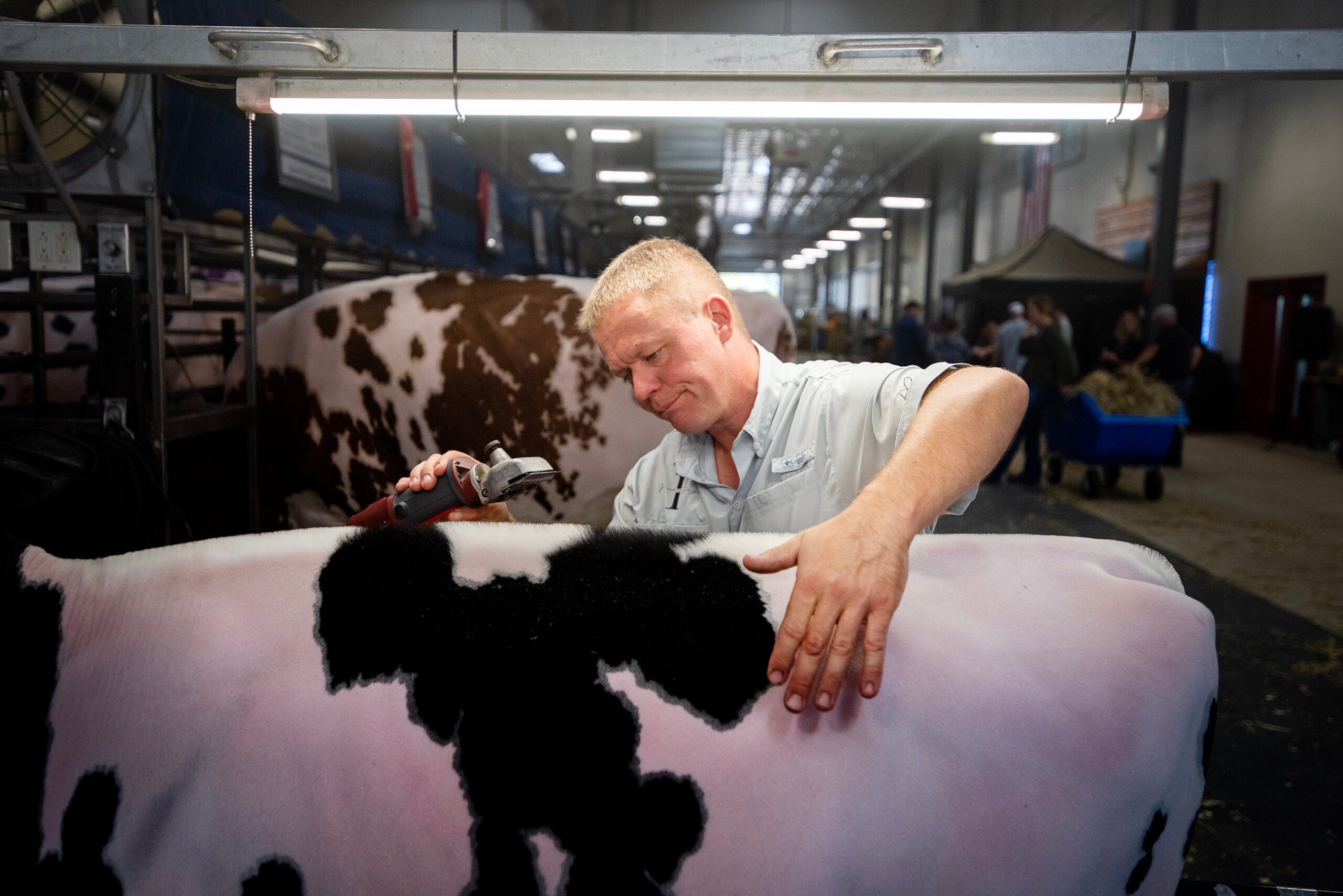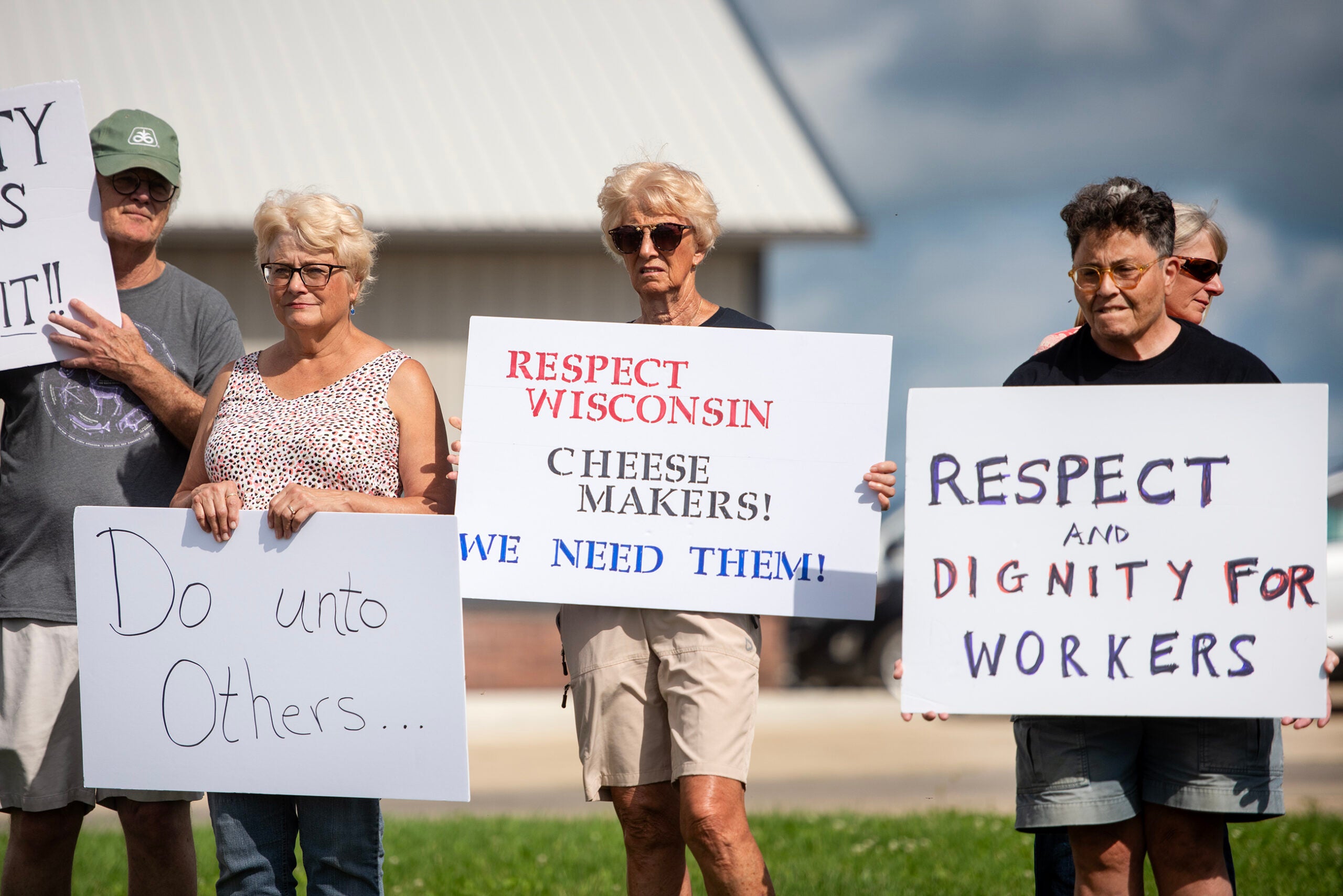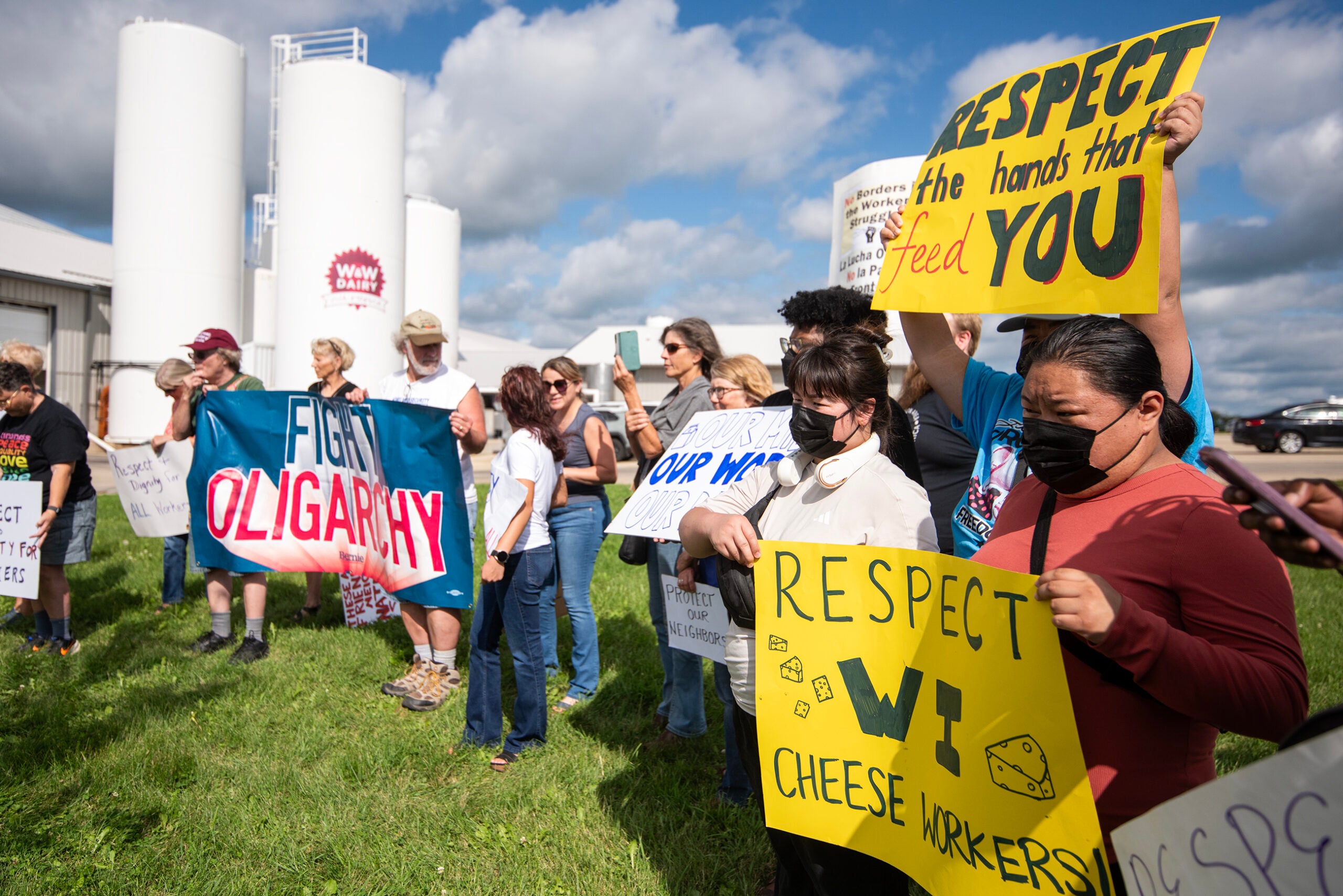Members of Wisconsin’s dairy industry are joining immigration lawyers and faith leaders in calling for Congress to act on a program that protects young immigrants brought to the United States illegally as children, commonly referred to as “Dreamers.”
Business groups helped kick off a nationwide campaign on Thursday pushing for immigration reform, starting with the Deferred Action for Childhood Arrivals program, or DACA.
The campaign led by the New American Economy — called iMarch 2017 — hopes to engage policymakers from both parties to demonstrate bipartisan support for immigration reform. One of the group’s primary goals is to increase opportunities for immigrants to work in the U.S., and for foreign students — including Dreamers — to stay in the U.S.
News with a little more humanity
WPR’s “Wisconsin Today” newsletter keeps you connected to the state you love without feeling overwhelmed. No paywall. No agenda. No corporate filter.
These goals are geared toward addressing worker shortages across the country and state, especially in fields like agriculture and manufacturing.
Wisconsin’s dairy industry relies heavily on immigrants and is experiencing a shortage of workers even though some farm businesses pay salaries that start in the $40,000 range, according to John Holevoet, director of government affairs for Edge Dairy Farmer Cooperative, who provides services to nearly 800 farmers including representation on federal policy issues like immigration.
“What has probably been a problem and a concern for many years is rapidly reaching crisis levels,” Holevoet said during a teleconference,
The vast majority of dairy workers are immigrants, however not many of them are Dreamers, said Holevoet. According to the New American Economy, there are more than 10,000 DACA eligible residents in Wisconsin out of more than 300,000 immigrants currently living in the state.
“In the state of Wisconsin, our economy is based on agriculture and industry and we have a shortage of workers in both of those areas; nationally and locally there is an insufficient supply of low-skilled workers,” said Milwaukee immigration attorney Stephen Berman.
Organizations assisting Latinos in the northeastern part of the state say the demand for workers could be reversed if immigration laws were changed.
“There’s a tremendous lack of workers in the manufacturing field, a desperation on the part of manufacturers to get workers. Our frustration is there are people here who can work or desire to work but are not able to work because of their status,” said Sister Melanie Maczka, executive director of Casa Alba Melanie, a Hispanic resource center in Green Bay.
President Donald Trump announced in September that he was going to end DACA and gave Congress six months to fix it.
In addition to the fate of DACA being unknown, there is a bill in the state Legislature that would penalize cities for acting as so-called “sanctuary cities.” If passed, communities that have put rules into place that bar law enforcement from asking people their immigration status or reporting people living in the country illegally to the federal government would be fined up to $5,000 per day. Trump also wants to deny funds to cities that don’t cooperate with federal immigration officials, but that plan is currently blocked by the courts.
Wisconsin Public Radio, © Copyright 2026, Board of Regents of the University of Wisconsin System and Wisconsin Educational Communications Board.







